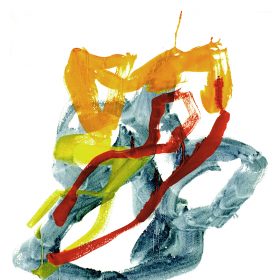Education
Ph.D. Duke University
A.B. Harvard University
Courses
- Time and Eternity in the Judeo-Christian Tradition Asceticism
- Mysticism and Logic Theory of Religion
Publications
Selected Publications:
- At Odds with Badiou: Politics, Dialectics, and Religion from Sartre and Deleuze to Lacan and Agamben. Forthcoming, Columbia University Press.
- Deleuze, the Dark Precursor: Dialectic, Structure, Being. Baltimore: The Johns Hopkins University Press, 2012.
- The Delirium of Praise: Bataille, Blanchot, Deleuze, Foucault, Klossowski. Baltimore: The Johns Hopkins University Press, 2001.
- Deleuze and Guattari: New Mappings in Politics, Philosophy, and Culture. Co-edited with Kevin Jon Heller. Minneapolis: Univeristy of Minnesota Press, 1998.Articles:
- “Do Dual Structures Exist? Deleuze and Lacan in the Wake of Lévi-Strauss,” Yale French Studies 123 (special issue on Claude Lévi-Strauss, 2013), 83-99.
- “On Not Knowing the Original Language: French Philosophy Against Comparative Literature,” Comparative Literature 65:1 (winter 2013), 36-45.
- “The Inexistence of the Western Jewish Archive,” PMLA 127:2 (March 2012), 375-79.
- “Ethics and the World without Others” in Deleuze and Ethics, edited by Nathan Jun and Daniel W. Smith. Edinburgh: Edinburgh University Press, 2011.
- “Extreme Formality: Sadism, the Death Instinct, and the World without Others,” Angelaki 15:1 (April 2010), 77-85.
- “Lévi-Strauss, Deleuze, and the Joy of Abstraction,” Criticism 49:4 (fall 2007) [published 2008], 429-45.
- “The Desire Called Mao: Badiou and the Legacy of Libidinal Economy,” Postmodern Culture 18.1 September 2007) [published 2008].
- “The Saturday of Messianic Time (Agamben and Badiou on the Apostle Paul),” South Atlantic Quarterly 107:1 (2008), 37-54. \
- “Klossowski, Deleuze, and Orthodoxy,” Diacritics 35:1 (2005) [published 2007], 47-59.
- “Jewish Cowgirls and Cowboys Take Flight,” in Chasing Esther: Jewish Expressions of Cultural Difference, edited by David Metzger and Peter Schulman. Santa Monica and Haifa: Kol Katan Press/University of Haifa, 2006.
- “Midnight, or the Inertia of Being,” parallax 12:2 (2006), 98-111, special issue on Maurice Blanchot.
- “Betraying Well” [extended review of Zizek’s Organs Without Bodies: Deleuze and Consequences, with response by Zizek], Criticism 46:4 (2005), 651-59.
- “‘To Cut Too Deeply and Not Enough’: Violence and the Incorporeal,” in Theology and the Political: The New Debate, edited by Creston Davis, John Milbank, and Slavoj Zizek. Durham: Duke University Press, 2005.
- “Why the Family is Beautiful (Lacan against Badiou),” Diacritics 32:3-4 (2002) [published 2005], 135-51.
- “Fargo Jewish Archive Malady,” Oxford Literary Review 25 (2003) [published 2005], 261-80.
- “Beauvoir, Merleau-Ponty, and the Phenomenology of Relation,” Bulletin de la Société Américaine de Philosophie de Langue Française 13:1 (Spring 2003), 68-77.
- “Solid Dialectic in Sartre and Deleuze” Polygraph 14 (2003), 115-28.
- “Living Virtually in a Cluttered House,” Angelaki 7:3 (December 2002), 159-69.
- “Beauvoir, Merleau-Ponty, et la phénoménologie de la relation” in Cinquantenaire du Deuxième Sexe, edited by Christine Delphy and Sylvie Chaperon. Paris: Syllepse, 2002.
- “Deleuze, Klossowski, Cinema, Immobility: A Response to Stephen Arnott,” Film-Philosophy 5:33 (November 2001).
- “Towards a Feminist Philosophy of Mind,” in Deleuze and Feminist Theory, eds. Ian Buchanan and Claire Colebrook. Edinburgh: Edinburgh University Press, 2000.
- “Klossowski or Thoughts-Becoming” in Becomings: Time, Memory, and Futures, edited by Elizabeth Grosz. Ithaca: Cornell University Press, 1999.
- “Falling From the Sky: Trauma in Perec’s W and Caruth’s Unclaimed Experience,” Diacritics 28:4 (Winter 1998), 44-53.Work in Progress:
- “The Incorporeal,” book manuscript on the importance of solid objects, minerals, and plants in French phenomenology from Sartre to Deleuze; topic of the Gauss Seminars, spring 2009.
- “The Jewry of the Plain,” book manuscript on rural Jewish settlers in the American West between 1850-1930 and the archives, museums, and cemeteries that commemorate them; simultaneously a meditation on the work of Jacques Derrida.
- “The Name of the Husband,” book manuscript on the figure of the husband in French literature from Madame de Lafayette to Klossowski, drawing heavily on the work of Jacques Lacan.


